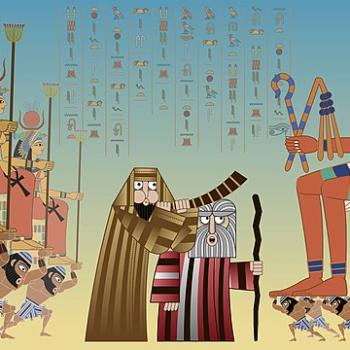There is one feature of the classic Laurel and Hardy films that I’ve never seen addressed in writing, nor heard anyone ever talk about. Everybody (with a few perverse exceptions) admits the movies are charming, funny, and occasionally hilarious beyond measure. But what I’ve never seen discussed concerning the screen duo is the most obvious thing about them: no matter how much they annoy and outrage each other – no matter how much Ollie may boil over or Stan weep in frustration – the thought of separating and going their separate ways never ever occurs to either man. The possibility is never even brought up, or broached in any manner whatsoever. It’s as though the thought never rises – however dimly – in either slow-moving mind.
This is extraordinary, to my mind. Don’t you think that somewhere during their travels, as a result of their never-ending confrontations and irritations, at least once Stan or Ollie would suggest splitting up? No. Never. The thought, as I say, never even occurs to them, and their persistent union seems like some eternal principle of nature that nothing can alter or abridge. Laurel and Hardy are inseparably one, always and forever, and any other arrangement between them is inconceivable. Even to imagine one of them alone is impossible.
Now it has long seemed to me that the “L&H principle”, as it were, should form the bedrock of one’s understanding of marriage. A marriage should be based on this spirit of The Great Unthinkable: the spirit that says even the thought of separation – the word itself – cannot be inspissated in the mind, and (if formulated) cannot be passed along to the tongue. This is the one logos that is strictly and invariably forbidden, and is to be banished from one’s brain the moment it is ever audacious enough to slink and slither in.
But of course this is entirely theoretical, and in principle only. One does not see serious abuse between Oliver and Stan – Ollie may slap Stan’s hat off in exasperation, and Laurel might kick his friend in the seat of the pants, but that’s about the extent of it. Whether real physical harm or prolonged psychological abuse invalidate the marriage vows, and rend in two the “one flesh” of Scripture, is a subject too involved for this modest essay. The Lord Himself, however, tells us that adultery is grounds for thinking the Unthinkable. So the Laurel and Hardy paradigm goes only so far. But as a general guiding rule of thumb for most husbands and wives, I think it’s a solid foundation for what one is permitted to entertain, and what one is not.
Taking this principle to the next highest level, let’s see what God the Father thinks of it. How does this principle operate in divine affairs – or does it?
There are two sides to the question when it is placed in that elevated and august arena. On the one hand, God does in fact threaten to leave His chosen, specially created people: faced with their sinning and thick-neckedness, He warns:
“I will forsake my house, abandon my inheritance; I will give the one I love into the hands of her enemies” (Jeremiah 12:7).
This is not the language of Laurel or Hardy; neither of them would ever in a thousand years have allowed such words –- vis-à-vis his partner — into his own thickheadedness.
On the other hand, in Deuteronomy 31:8, the Lord God had informed Moses, as Moses prepared to lead the Hebrews into the Promised Land, that
“the LORD himself goes before you and will be with you; he will never leave you nor forsake you. Do not be afraid; do not be discouraged.”
Now perhaps that applied only to Moses, but I tend to think that God was vowing eternal fidelity to those Hebrews who remained steadfast in their devotion and obedience to God. Much later we find the author of Hebrews quoting this passage:
“Keep your lives free from the love of money and be content with what you have, for God has said: ‘Never will I leave you, never will I forsake you’ (13:5).
Here the promise seems to apply to the early church faithful, just as the prior promise in Deuteronomy appeared to be for the faithful Hebrews. But what is the underlying point, or lesson, we can detect under all this?
The answer is intriguing and portentous: God, apparently, does not operate on the L&H principle.
He articulates from the very beginning that He is laying down the conditions for His continued presence in the lives of His people. If they prove to be loyal, He will be loyal. But that arrangement – that covenant, if you will – is all out in the open. Nothing is unspoken, or taken for granted, or assumed. With Stan and Ollie, loyalty is not even unspoken: it’s unthought. That’s what makes it so compelling and almost magical. It is a mystic union. But with our Creator, the relationship between Him and those who follow Him is spelled out in often prosaic detail through sixty-six books, and practically no facet of it is left obscure. The very nature of loyalty is hammered out and explicated through the lips and pens of prophets and priests and kings and Nazarites and various other holy men and women. There are commandments and laws and prophecies and warnings and admonitions without end. The importance of remaining faithful until the very end is emphasized and endlessly insisted upon. Nothing could be clearer.
Yet with our old friends Stan and Oliver, who go on bumbling and stumbling down their timeless cinematic path, maddening each other to the point of cartoonish slapstick violence, loyalty is something so primeval, so preexistent, so pre-notional and foundational to being, that it never even comes to mind. And that – for some sweet unaccountable reason – seems to make their friendship all the more divine, radiant, and transcendent.
But then again, they were never burdened with God’s mission of wooing and winning the remnant of a very recalcitrant people. Our Father, one might say (with a great deal of reverence), had other fish to fry.













